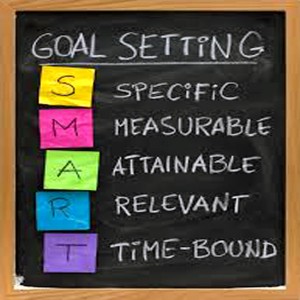I Am Finally That GRADUATE!
 Bunmi! Stop disturbing yourself, there is even nothing at all to show that education is for you” that was our neighbor ‘Iya Bimbo’. She would sit me down sometimes and tell me stories of how she progressed from being an apprentice to owning her own hair-dressing saloon, without even having to go to school. She was very ready to put me through the same process. But deep inside of me, I desired more.
Bunmi! Stop disturbing yourself, there is even nothing at all to show that education is for you” that was our neighbor ‘Iya Bimbo’. She would sit me down sometimes and tell me stories of how she progressed from being an apprentice to owning her own hair-dressing saloon, without even having to go to school. She was very ready to put me through the same process. But deep inside of me, I desired more.
Everything around me seemed to be saying ‘NO’ to my desires, and it hurt. I lost my dad when I was barely three years old, and lost every other thing, except my mum and my uncertain desires. My mum and I had to relocate to Iwo in Osun state, as my dad’s elder brother came and took all that we had. We stayed there for three years, before my mum remarried and moved to Ibadan. That was when I was forced to remember that I came to this world alone.
I had to go and live with my Uncle Ajadi at Ijebu Ode for two years and later with Aunty Funke, in Lagos. Did I really attend primary school? I can’t particularly say so, because I was rarely in one school for long enough, as my living circumstances changed from being relocated from one family member to the next. My time in secondary school was fair enough with more stability, but my time was divided between thirty per cent house chores, forty per cent hawking, and the remaining thirty per cent left for school work.
Life had been so unfair to me, or so I thought, that I barely knew what was right for me anymore, but I just always knew that if I wanted to meet up with my desire of being a Journalist, I had to study, study and study with the little time I had. At the age of 19, I gained admission into the University of Lagos to study Mass Communication. It was yet another phase of struggles.
I had to do part time jobs: teach private lessons, work as a sales assistant during the weekends, dry clean clothes for friends, and then meet my mum for the little she could add up for me. With these, I was able to pull through the University financially. When my final results were released, I was so overwhelmed with excitement that I, Bunmi Oreshade was graduating with a Second Class Upper Division; all that hard work and perseverance had paid off after all!
I now work with a newspaper organisation in Lagos. Personally, I have come to realize that life poses challenges not to ruin us, but as an opportunity to discover how determined we are about achieving our dreams and aspirations.
“Your family background or life circumstance does not have to put an end to your aspirations to succeed.. This young lady has proven that with hard work and determination, one can always succeed regardless of the situation”
(This is a real life story but the character has chosen to use a fictitious name to protect her privacy)
Planning For Your Future Now
Like Bunmi Oreshade, transition from childhood into adulthood might be challenging for many young people. This is a stage where many things seem to be happening at once, such as battling with confusing emotions, trying to figure who one is and build a personality. There is also the decision of what career to be pursued in the future as well as other decisions to be made as a young person.
No matter how daunting all these may seem, you can create a desired future by planning ahead. Starting now, you can choose a career you want to pursue and nurture that dream.
What steps should you take in planning for the future?
WHAT DO YOU WANT IN LIFE?
 In Mark Strand’s words “The future is always beginning now”. To plan for the future, you must first understand who you are and what you want in life. What are your dreams? What do you need to achieve these dreams? What challenges/obstacles are you likely to encounter in the pursuit of your dreams? What skills do you have? What do you love doing?
In Mark Strand’s words “The future is always beginning now”. To plan for the future, you must first understand who you are and what you want in life. What are your dreams? What do you need to achieve these dreams? What challenges/obstacles are you likely to encounter in the pursuit of your dreams? What skills do you have? What do you love doing?
What you love doing reveals your interests and skills. Most times, your interests are closely tied to your skills, especially skills you enjoy using often. Identifying your skills can open you up to more career options. For instance, a person who is good at drawing, can develop that skill by deciding to study Fine-Art or Architecture in the University
IDENTIFY YOUR GOALS
A goal is something specific that you want to accomplish within a certain period of time. People who achieve their goals are those who take time to clearly define what they want and pursue it relentlessly. It might be a long term goal (To become a doctor in future) or a short term goal (To finish reading a textbook by the end of a week).
Discussing your goals with trusted people like your family, counselors, teachers, religious leaders and mentors can help you understand your life aspirations better.
You can set goals in some of the following areas (or in other areas you feel are important to you):
- Career – What level do you wish to attain in a chosen career? Do you want to work in an established organization or become an entrepreneur with your own business?
- Education – What educational qualifications/ level do you wish to attain? What information and skills are needed to obtain this qualification, for how long will I need to study?
- Attitude – Are there certain attitudes that can disturb achievement of your goals? Are you optimistic or pessimistic? Do you procrastinate or work well with time? Your attitude towards issues has a great influence in deciding your career.
A useful way of making goals more powerful is to use the SMART memory aid when setting them. SMART stands for:
- S – Specific (or Significant).
- M – Measurable (or Meaningful).
- A – Attainable (or Action-Oriented).
- R – Relevant (or Rewarding).
- T – Time-bound (or Trackable).
Making a Career Decision
One of the decisions or future plans young people have to decide about is the choice of a career.
There are many factors that influence a young person’s career decision and spark a lifelong interest in a job. It could be a game played as a child or a character on a television show. Other influences are; family, friends, culture, media and teachers. Despite these influences, you are the most important decision maker. You also have to make plans to achieve your desired career.
The steps in achieving a desired career include:
- Assess Yourself
Before you can make a career choice you have to learn about yourself. Ask yourself, what do I like to do? What am I passionate about? What are my values, interests, skills, and personality traits that will make this career suitable for me?
You can talk to a counselor, your parents or someone who is already practicing the profession to give you more insight.
- Explore your career Options
Learn about your career options. What is needed for my chosen career? What subjects am I supposed to take at O’ levels? What skills are needed? What school will offer me the best platform for this career? What are the likely challenges? These are a few questions to ask yourself when making a career choice.
- Setting your priorities
A third step in choosing a career is to sort out your priorities for that career. This is a major component of career planning for a young person. After you have spent time on steps one and two, some of your strong preferences would start to emerge. You might learn that you don’t want to work in an office environment, or you might find out that your interest in art wouldn’t sustain a career, so you can take those types of jobs off your career list.
Whatever it is that you learn about yourself, you’re making important discoveries that will help you choose a good career.
Most importantly, keep it all in perspective. Set a time frame and continue to assess yourself to see how far you have gone and what more you need to do. This can be done with a career plan template.
A Career Plan Template
| What are my Career Plans/objectives? | Priority | What activities do I need to undertake to achieve my objectives? | What support/resources do I need to achieve my objectives | Target date for achieving my objectives | Actual date of achieving my objectives |
|---|---|---|---|---|---|
| To finish Secondary School | 1 | Study , attend classes | Get textbooks Source for educational material online | 2015 | May 2015 |
| To Study Mass Communication | 2 | Make at least 5’ A in my WAEC-Write Jamb | Take extra lessons-Read past WAEC and JAMB question papers | 2015 | September 2015 |
| Review Date: | |||||
The good news is that while you can decide on a career to pursue now, you don’t have to live forever with that career. Most people change careers several times during their lives, so the first career you choose probably may not be your career 15 or 20 years from now — unless you want it to be. So don’t put too much pressure on yourself to make the perfect decision, and always keep your eyes open, and use all available resources in your journey on choosing a career.
Challenges are bound to arise when planning for the future. Some common challenges young people face in making career choices include:
Finances: Sometimes, parents/ guardians might not have the finance to help pursue your desired career. Do not allow this become a setback, instead why not think of taking up a part-time job as this will help support your education and also build your skills and professionalism.
Peer Pressure: At times, we tend to drift towards what our friends are doing and not pursue our own dreams. Choosing your friends wisely will help in overcoming this challenge. Associate with friends that will help you achieve your goals as well as support your dreams.
Change in Career Choice: You might have started out to study Medicine but discover along the line, you have a love for Arts. You are faced with the dilemma of either pursing your love for Art or career aspiration of becoming a doctor. As challenging as this might seem, it is pretty easy because you can be a medical doctor and also an artist. All it takes is setting your priorities rightly. But if you can’t achieve that, you could decide to pursue your love for Arts and develop it into a career. Carefully and strategically re-plan and set your goals to suit your current career choice
In all, setting goals is paramount when planning for the future because it helps you to be focused. However, change is a constant thing in life thus; we must always be prepared to adapt to new developments and trends.
You own the key to creating a great future for yourself hence start today by planning for your future.
References
http://www.careers.govt.nz/plan-your-career/helping-young-people-make-decisions/
http://www.careers.govt.nz/plan-your-career/helping-young-people-make-decisions/what-things-influence-a-young-persons-career-decisions/
http://careerplanning.about.com/od/careerchoicechan/tp/Career-Choice.htm
http://www.careerliftoff.com/how_to_choose_a_career.html
www.mindtools.com/page6.html
Your Future Now-A Transition Planning And Resource Guide For Youth With Special Needs And Their& Families by British Columbia Ministry Of Children And Family Development
What colour is your parachute? For Teens by Richards Nelson Bolles and Carrol Christen







You must be logged in to post a comment.